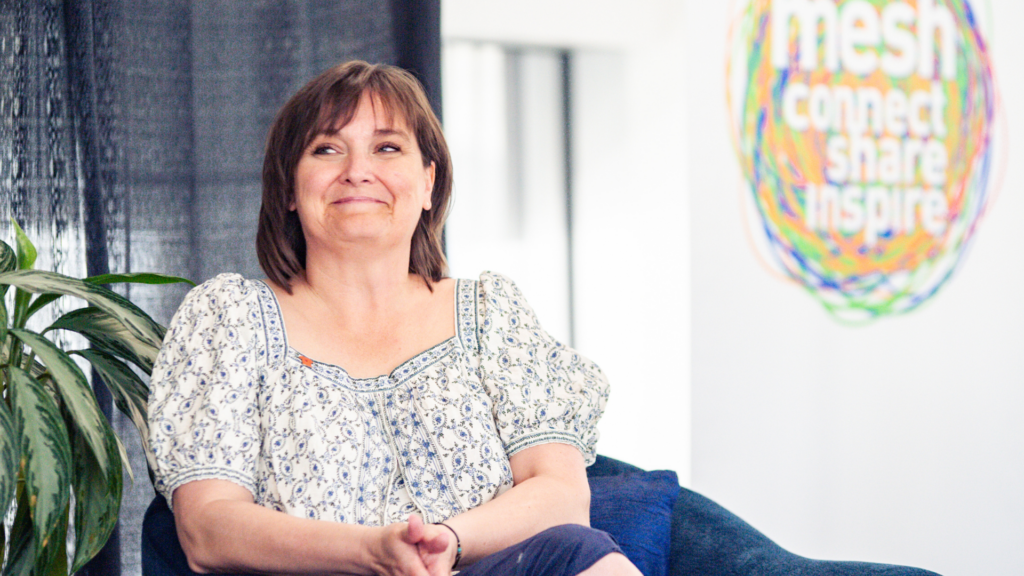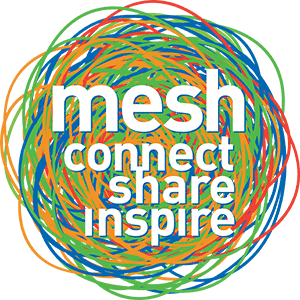
When the ground shifts beneath your business, what takes root in its place? Margo Purcell wants leaders to stop assuming it will be something they planted, and she wants leaders to stop avoiding the question. Because whether it’s global tariffs or an organizational reorg, the aftermath is the same: exposed soil. And in exposed soil, weeds thrive.
“We’ve seen the results of the ‘fail fast and break things’ mantra,” says Purcell. “When you rip out a plant and don’t put something in its place, dandelions will land and take over.”
This metaphor isn’t just a throwaway line. It’s the foundation of the talk Purcell is bringing to mesh, Canada’s premier innovation and digital transformation event, happening April 29-30, 2025 in Calgary.
As CEO of InceptionU (a mesh sponsor) she will lead a session titled Sowing the Seeds of Innovation: Creating the Right Conditions for Growth Within Your Organization.
This is not a course on culture or another workshop on managing change. It’s an invitation to dig below the surface and examine the soil your team is growing in.
Purcell uses landscaping as a metaphor to help leaders understand what lies beneath their organizational performance. Are the nutrients still there? Or has the top layer been stripped and sold, leaving little room for anything new to take root?
This isn’t training — it’s learning how to learn again
“We don’t use the word training,” says Purcell. “Training is what you do with animals.”
Traditional training, she argues, often teaches methods that become irrelevant the moment conditions change. Instead, InceptionU focuses on developing learning capacity, with an emphasis on curiosity, systems thinking, and creative problem-solving.
Most leaders can explain what their business does and why. Fewer know how to build the conditions for innovation from the inside out.
“If everyone had this figured out, they wouldn’t be searching for more creativity,” she says.
In her session at mesh, Purcell will walk through the subtle yet critical differences between technical knowledge and innovation capacity. Attendees will explore what holds their organizations back from adapting, why traditional upskilling often falls short, and how to reframe success in an environment shaped by constant emergence and disruption.
The session will conclude with a practical takeaway: a condensed version of InceptionU’s organizational readiness diagnostic. All attendees will receive access to this free tool to assess their own organization’s innovation conditions and identify where the gaps are. Those who complete the full diagnostic afterward will also get InceptionU’s “Go There model” which is a step-by-step guide to help teams shift from insight to action.
How to know if you have an innovation problem
“Innovation capacity means people can see what needs to be done and do it without waiting to be told,” says Purcell.
She outlines several red flags. Too much silence in meetings. Too many answers and not enough questions. A pattern of doing the same thing under a different name. An aversion to mistakes. These are all signs that innovation might be getting smothered.
And if you’re still clinging to high-performing technical staff who stifle the people around them, it may be time to re-evaluate what you’re actually growing.
Purcell encourages leaders to consider not just what talent they need, but how to transform what they already have. That means investing in metaskills like communication, collaboration, and self-awareness. These are the skills that don’t burn when, as she puts it, “change is an arsonist.”
“We value technical competence so much that we hold onto people or processes we’ve outgrown,” she says. “But in nature, when something dies, it fertilizes the next thing.”
You can’t wait for things to go back to normal
The session also addresses a common leadership blind spot: the assumption that things will return to normal once the current crisis passes.
“How confident are you that when the tariffs are gone, you’ll be ready for the next change?” Purcell asks. “The world as we knew it is over. Life is emergent. You need to build the capacity to respond to what you can’t yet predict.”
If you’re a leader asking hard questions about the team you’ve built, and whether they’re ready for what’s coming next, this session is for you. Expect to leave with more clarity, more questions, and a pathway forward.
See Margo Purcell speak at mesh on April 29-30, 2025. You’ll leave with a readiness assessment and a deeper understanding of how to grow your innovation capacity before the next disruption hits.

